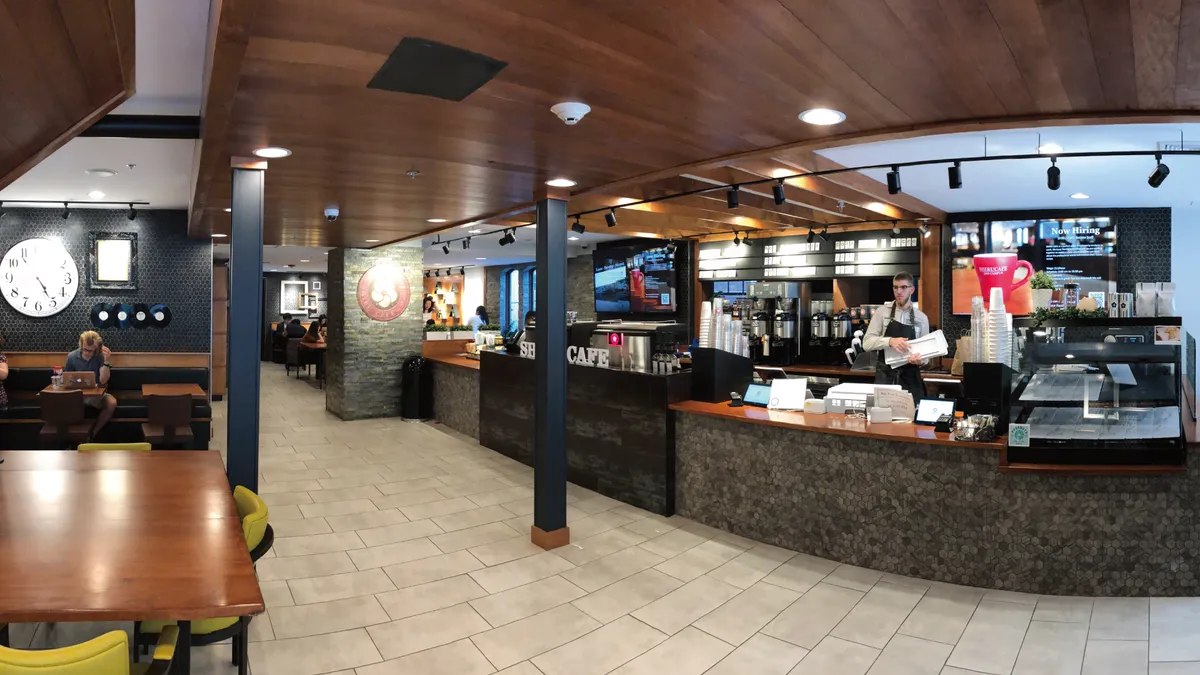Dive Brief:
- College students may be strapped for cash, but they have plenty of personal data to offer. Shiru, a Japan-based cafe chain, is betting they're willing to share that data for free coffee, Inside Higher Ed reported.
- Shiru cafes look and act like regular coffee shops. But instead of money in exchange for a beverage, they require college students to share details such as their name, age, interests, major, graduation year and email address, and agree to be contacted by corporate sponsors who use the cafes for recruiting and get an aggregate look at the data.
- The chain, which serves college students and faculty only, opened its first U.S. location near Brown University in Providence, Rhode Island. Shiru has other locations in Japan and India, and it is planning to add cafes near Harvard, Princeton and Yale universities as well as Amherst College.
Dive Insight:
The voluntary exchanges at Shiru are happening off campus, which allows corporate sponsors access to student data they wouldn't be able to get from the university.
On campus, however, colleges that have long kept student data under lock-and-key are now weighing the merits of predictive analytics tools, which already inform much of students' online experience beyond that on their college's domain, The Atlantic explains. Such efforts typically require colleges share student data with a third-party consultant or technology provider, raising questions of data privacy and compliance with regulations such as FERPA and HIPAA.
In 2012, Georgia State University began using predictive analytics, working with for-profit consultant the Education Advisory Board to design algorithms that would predict how likely a student was to succeed in their major and identify those who were struggling. Georgia State used the data to target outreach among the student body, The Atlantic notes, raising questions about whether mining student data counted as surveillance if it ultimately improved the educational experience.
Perhaps the biggest data battle in higher education today concerns efforts to increase collection of data on individual students, or student-unit data. The bipartisan College Data Transparency Act, which is currently working its way through Congress, aims to make student outcomes data more readily available to institutions, policymakers and students. Advocates say overturning the existing ban on such data collection will help generate better information on student outcomes by collecting information on more kinds of students. Critics contend it violates data privacy expectations.
Colleges can expect more and different market-driven needs for student data, whether through algorithms that can spot a student falling behind in a class or public pressure for more detailed information on outcomes such as student earnings for prospective applicants.










